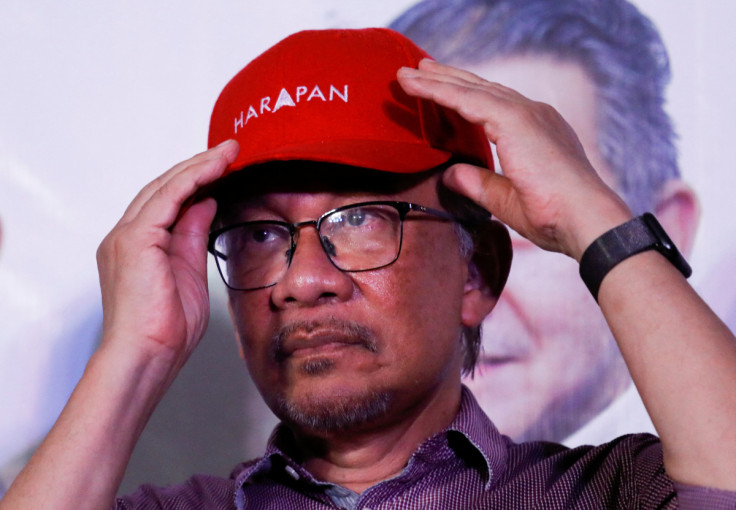Malaysia's Anwar Tries To Lock In Lead In Close Election Race

Anwar Ibrahim has ramped up campaigning this week to be Malaysia's prime minister, buoyed by polls putting the veteran opposition leader ahead in a closely fought contest.
Saturday's general election looks to be the Southeast Asian nation's tightest since independence in 1957, with opinion polls predicting a hung parliament as no party or coalition is expected to get the simple majority needed to form a government.
The coalition led by Anwar - who in 25 years has gone from the heir apparent of Malaysia's longest-serving leader to a prisoner convicted of sodomy to the country's leading opposition figure - is expected to win the most seats but fall short of a majority, polls and analysts say.
Rival alliances, including those run by Prime Minister Ismail Sabri Yaakob and former premier Muhyiddin Yassin, could come together to clinch the required numbers and deny Anwar the top job.
The top issues for voters are the economic outlook, with growth expected to slow, and rising inflation. Many Malaysians are also frustrated with recent political instability that they think has taken politicians' focus away off economic development.
Anwar's Pakatan Harapan coalition is forecast to secure the largest share of votes at 35%, according to a survey by British research firm YouGov on Wednesday. The Perikatan alliance led by Muhyiddin is on course for 20% and Ismail's Barisan Nasional 17%, the survey showed.
Ismail's and Muhyiddin's alliances are part of the ruling coalition but contesting the election separately.
Anwar, a former finance minister and deputy prime minister, has appeared at big rallies vowing to create political stability, heal divisions between the Muslim-majority Malays and other ethnic groups and restore the economy by bringing in jobs and investment.
"This election is not about changing the prime minister," Anwar said in an address on Thursday. "This election is the best chance to save the country and make sweeping changes to restore our beloved nation."
'TOO CLOSE TO CALL'
Anwar heads a multiethnic coalition, while Barisan and Perikatan are led by parties that prioritise the interests of Malays. Race and religion are divisive issues in multi-racial Malaysia, where ethnic Chinese and Indians make up about 30% of the electorate.
Anwar's alliance could lose if other blocs team up against it, analysts say, with smaller political coalitions based in Borneo island's Sabah and Sarawak states potentially playing kingmaker.
In an interview with Reuters this month, Anwar ruled out working with Ismail and Muhyiddin's coalitions, citing "fundamental differences" over race and religion.
In the event of a hung parliament, Anwar's Pakatan could have an advantage in attracting allies, as divisions and infighting made the other two major coalitions "inherently unstable", said Bridget Welsh of the University of Nottingham Malaysia.
But she said many seats remained too close to call, as 15% to 30% of the electorate are undecided, according to Welsh and a survey by independent pollster Merdeka Center.
Anwar's more than two decades as an opposition figure have included nine years in jail for sodomy and corruption, charges he says were politically motivated.
He was released from prison in 2018 after joining hands with former Prime Minister Mahathir Mohamad, both his mentor and long-time rival, to defeat Barisan for the first time in Malaysia's history amid public anger at the government over the multibillion-dollar 1MDB scandal.
Mahathir became prime minister for a second time in 2018 at age 92, promising to hand over power to Anwar within two years, but the coalition collapsed in 22 months due to infighting over the transition.
Muhyiddin briefly became premier, but his administration collapsed last year, paving the way for Barisan's return to power with Ismail Sabri at the helm.
© Copyright Thomson Reuters 2025. All rights reserved.





















